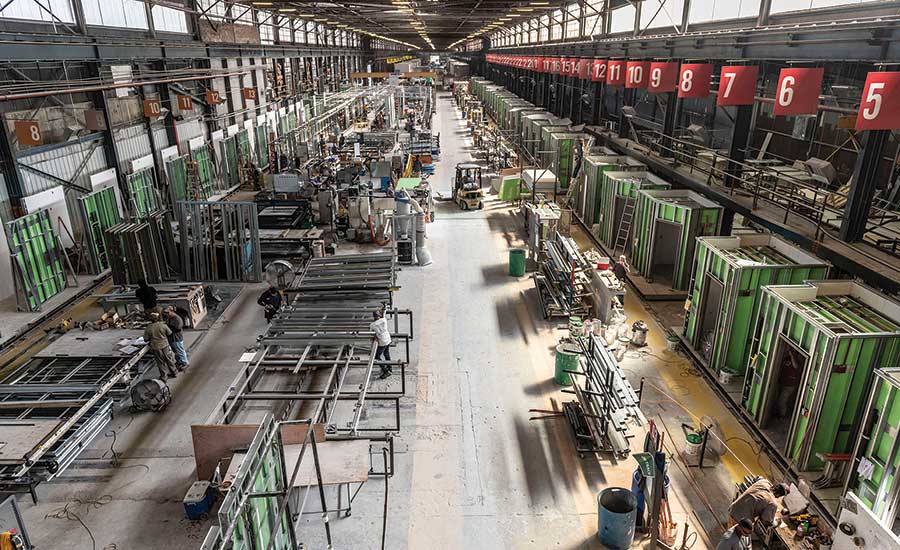Haskell’s 2019 investment in Bessemer, Ala.-based BLOX may pay off for the contractor as it eyes growth over the next five years. And if Chris Giattina, BLOX’s president, can achieve his lofty ambitions to change construction practices, the construction industry as a whole could have a more complete modular method at its disposal.
Giattina calls the BLOX method of construction Design-Manufacture-Construct and sees it as a potential disrupter to more traditional construction models. Haskell, for its jobs, tweaks the nomenclature, referring to the method as Design-Manufacture-Assemble, due to the relative ease with which BLOX modules can be put together, says J.P. Saenz, Haskell COO.
Founded in 2009, BLOX and its roughly 410 full-time employees manufacture approximately 50 projects per year from a 1-million-sq-ft former railcar factory in Bessemer. Currently, the company has 11 active production lines operating within the Bessemer facility, but expects to add six additional production lines in the fourth quarter of 2020, Giattina says.
|
Related Article |
Haskell added committed full-time staff to the partnership, as the two companies work together on some of the contractor’s current health care and religious/cultural projects. BLOX continues to operate independently, delivering modules to its clients using its DMC methodology..
Additionally, this past March, BLOX announced its plan to build up a “fleet of institutional-grade mobile isolation care units” as part of the national effort to provide beds for COVID-19 patients, though none has been delivered to date, says Giattina.
While Haskell had investigated other prefabrication/modular construction firms, BLOX caught the contractor’s attention because of its diversity of project types and an approach using steel modules instead of the more typical timber-based modules that other firms in the space typically used, Saenz says.
“None of them stood out like BLOX as far as the quality of the solution that they had developed,” Saenz explains. Also, the company’s experience with health-care projects—one of Haskell’s core markets—made for a good fit.
Also, the BLOX structure puts designers, manufacturing engineers and field assembly crew together to design projects and that appealed to Haskell. “We’ve always fully integrated those resources,” says Saenz. “So that helped bring the teams together quickly because we understood that approach.”
To Giattina, his company’s DMC approach should enable a less congested job site because it reduces or eliminates the need for craft labor, as modular units are designed to be easily assembled on site by workers with varying skill levels.
Right now, the future looks promising for BLOX and Haskell, says Saenz, with the firms teaming up for a “large global church” project to be delivered overseas.




Post a comment to this article
Report Abusive Comment